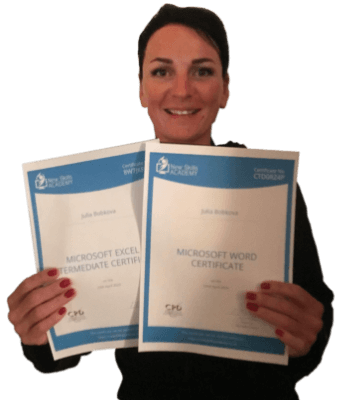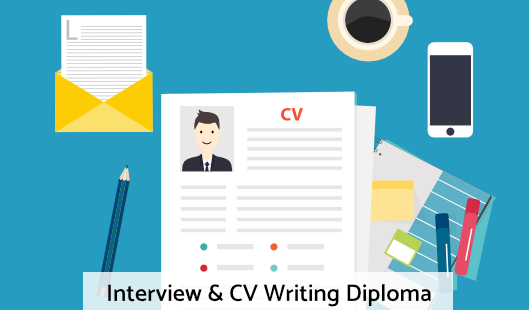Learning Blog
Five methods to help you cope with stress at work
avemen didn’t suffer stress, that is true, but a physiological mechanism designed to help them cope with the threats that their life imposed on them is what causes us to suffer from stress in our 21st-century life.
The caveman within and survival
Imagine yourself in an environment where it was either kill or be killed and all you had was a spear.
Our ancestors had to literally bring home the bacon and the possibility of being the food of some other animal that was faster and had bigger teeth. Faced with a threat, the body had a great mechanism to help us get ready to fight or run.
Adrenalin is the hormone secreted in times of danger or need, for energy. It causes the body to get ready for action by increasing the metabolism, making the sense sharper and making us vigilant.
The problem is our lifestyle has evolved but we still have the caveman instincts within, which now fire up when we perceive a threat and, unlike our caveman ancestors, those threats go on for hours, days, weeks and even months and we may want to run away from them, but we can’t.
Consequences of stress
Hans Selye was the first person to describe stress and he found it in abundance in the trenches of the First World War.
Young men, suffering from shellshock had their fight and flight system overwhelmed by the constant stress of danger so that their whole bodies and minds became worn out with it. Now, some arousal in response to our environment is a good thing because without a little stress we wouldn’t get out of bed, prepare for that presentation or revise for an exam. In contrast, too much stress over a long period of time can be detrimental to our health.
In fact, some people believe there is a modern-day phenomenon called adrenal fatigue caused by prolonged overstimulation of the adrenal glands which secrete adrenalin.
The problem is that we still have a caveman solution to a 21st-century problem, and no amount of “pulling ourselves together” can change our physiology. We need to work with it and manage our stress.
Methods to help you manage stress
- Create a boundary between work and home. With many of us working from home and/or expected to “do as many hours as the job requires”, this is harder than you may think, but just because it is hard, it doesn’t mean it isn’t necessary. So, if possible, don’t take work home from the office. If that's not possible, limit the days when you do this. If you have a home office, make sure you keep your work in there and shut the door when you're not working. It is essential that you take one day off a week at least.
- Sharpen the saw. This is a term used by the late, great, Steven Covey, management guru and author of The Seven Habits of Highly Successful People. Sharpening the saw means making time to learn new skills, not necessarily related to work. If you are physically competitive, it may be setting a target to complete a physical challenge. For others, it might involve creativity or learning to play an instrument. It isn’t a luxury but a necessity that will benefit you in work because you will feel fitter and/or creative.
- Take some exercise. This has the benefit of helping to combat the physical and mental aspects of stress. It can give you thinking time so that you can problem-solve better and it may even help you sleep better. It may be as little as taking the stairs, getting off a bus a few stops earlier or walking the dog. A tip: walk or cycle to work at least one day a week?
- Choose a mental/physical discipline and do it regularly. This is much more fun than it sounds! Mindfulness, meditation and yoga are all examples of disciplines that help to link body and mind together and help you live as a whole person. Yoga in particular can help you keep a well-toned and healthy body.
- Take a break from your desk. There are good, sound reasons why the Health and Safety at Work Act states an employee must have at least a 20-minute break if they work more than 6 hours a day. If you sit at your desk while eating your lunch, you are more likely to develop digestive problems and bad posture, and respond to an email in an impatient manner. A break means you are less likely to suffer energy drops and you will approach your afternoon better.
-afe98587fbea340da1d397f7e26d568b.jpg)



Summary
You wouldn’t get onto a plane, bus or train if you knew the pilot or driver was worn out by stress. Just because you work at a desk, it doesn’t make you less important to the lives of your colleagues and, most of all, your family. Look after yourself, you are worth it!
Learn with confidence...



 RRP
$100
RRP
$100
Get a FREE Course
Tick this box to Sign up for our newsletter, and get access to the Interview Skills and CV Writing Certificate course for free! By signing up, you agree to our Privacy Notice & Cookie Policy and to receive marketing and related emails from academy+ brands. You can unsubscribe at any time.What our students say about us...

Lovely course for people who want to know the basics and of sign language. It's has helped me to get more of an understanding and will greatly benefit me in my workplace. So easy to pick up and the videos were easy to understand. Would definitely recommend to anyone.
Chloe Hambly

Wow what an incredible insight for the start of anyone's journey in property. This course gives you so much information and there are tests and questions on each of the modules. The course is very easy to follow and well laid out. You can actually make notes on the pages of each module using the notes tab! I am very excited to say that I passed and I only spent one week on this course. I will print all the PDF information and keep it in a file with my certificate. I feel very confident for my future plans now I have completed this course.
Nichola Anderson

Very interesting and helpful course. I ve learned a lot of interesting things about make up and the tutorials were very helpful and easy to understand. I really reccomend this course for everyone who is passionate about make up and wish to develop their skills and make a career from their hobby.
Nicoleta Lucaci

This course is a great way to brush up on my rusty excel skills, I recommend this course to anyone looking for something to do during lockdown, it's easy to use and talks you through each stage step by step. It has given me the confidence I need to further my career.
Georgia Darke

I found this course incredibly useful, as it provided me with practical knowledge which I can implement in my role as a Support Worker. The videos were clear and concise, and the downloadable worksheets reinforced what I had learned as I was able to put pen to paper. Overall, a fantastic course for a great price! I am looking forward to taking on my next one.
Teleisha Harley

The course was clearly set out with helpful end of week tests which built my knowledge. Being dyslexic I found the course was set out in an easy to understand way. I was able to pass the test on my first attempt. The downloaded pdf are a useful resource that you can keep forever. Looking forward to the next course
Ross Dunsten

I took up this course initially to help me with my own dog, but found that as I worked through the material I actually started thinking that this could be something that I could use to make a second income. From start to finish I found the course engaging and interesting. I am now doing another dog related course and am experiencing the same level of enjoyment. I would recommend New Skills Academy without hesitation.
Keith Smith

This is a great course for any level of knowledge. Very easy to navigate, great practical tasks and explanations are very clear. You can revise any module with no problem. The test wasn’t too hard if you completed every module. It may be handy to make some notes before you start. Overall I'm very happy with my choice. Thank you New skills for my New skills :)
Julia Bobkova




